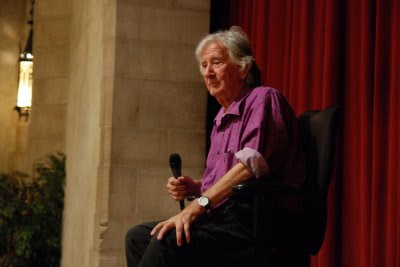James Arthur Barrett 1 May 1940-22 January 2013
To have known James Arthur Barrett was to
have been admitted into a world of history, magic, great events and into the lives
of people who attained greatness or infamy by their deeds. The spirit of adventure,
even if it was pressed upon the page, was always present in his conversation
and in the space around him.
As a child it was fascinating to listen to my
father’s stories about the two years he spent travelling the world with my
mother. The thought of traveling overland from London to Singapore seems impossible
today. But Jim and Roslyn did that and spent years talking about it afterwards. As
soon as he could, their oldest son attempted to emulate the feelings he
experienced as a result of such stories by setting out himself for world
travel.
Jim manifested his curiosity and knowledge
in a myriad of ways. Jim’s creativity and inquisitiveness extended from writing
poetry (he once had a poem published in ‘The Bulletin’ according to reliable
sources), to his many pursuits. Pottery, jewelry making and lapidary,
photography, studying languages (particularly Latin, Chinese and Japanese),
book binding and the quest for the perfect curry were some of his more long
lasting passions.
Of course there was also the family. Up to
the very end of his life, Jim was concerned and shared all he had with his
family. His partnership with Roslyn lasted 48 years, and his concern for his
children and grandchildren was always paramount in his mind. He inspired all of us towards a love of
knowledge, a curiosity about the world and a strong sense of compassion for
all.


















 Jean Baudrillard
Jean Baudrillard